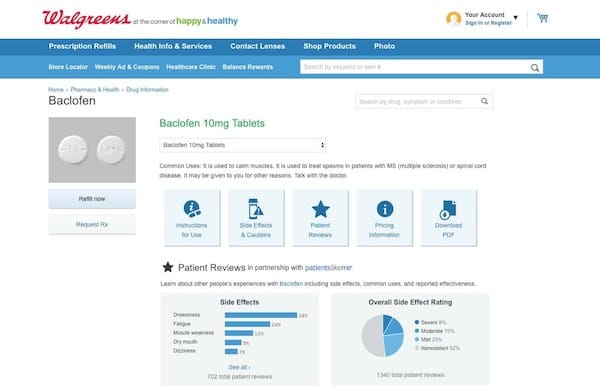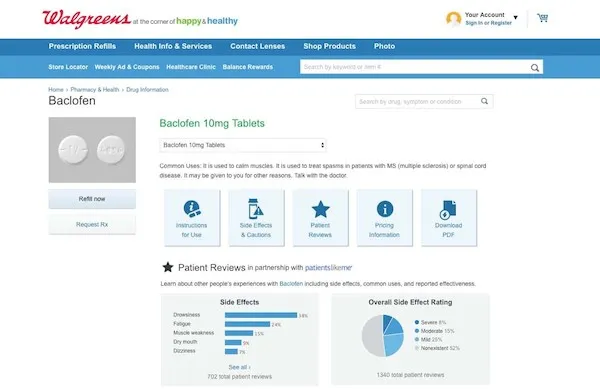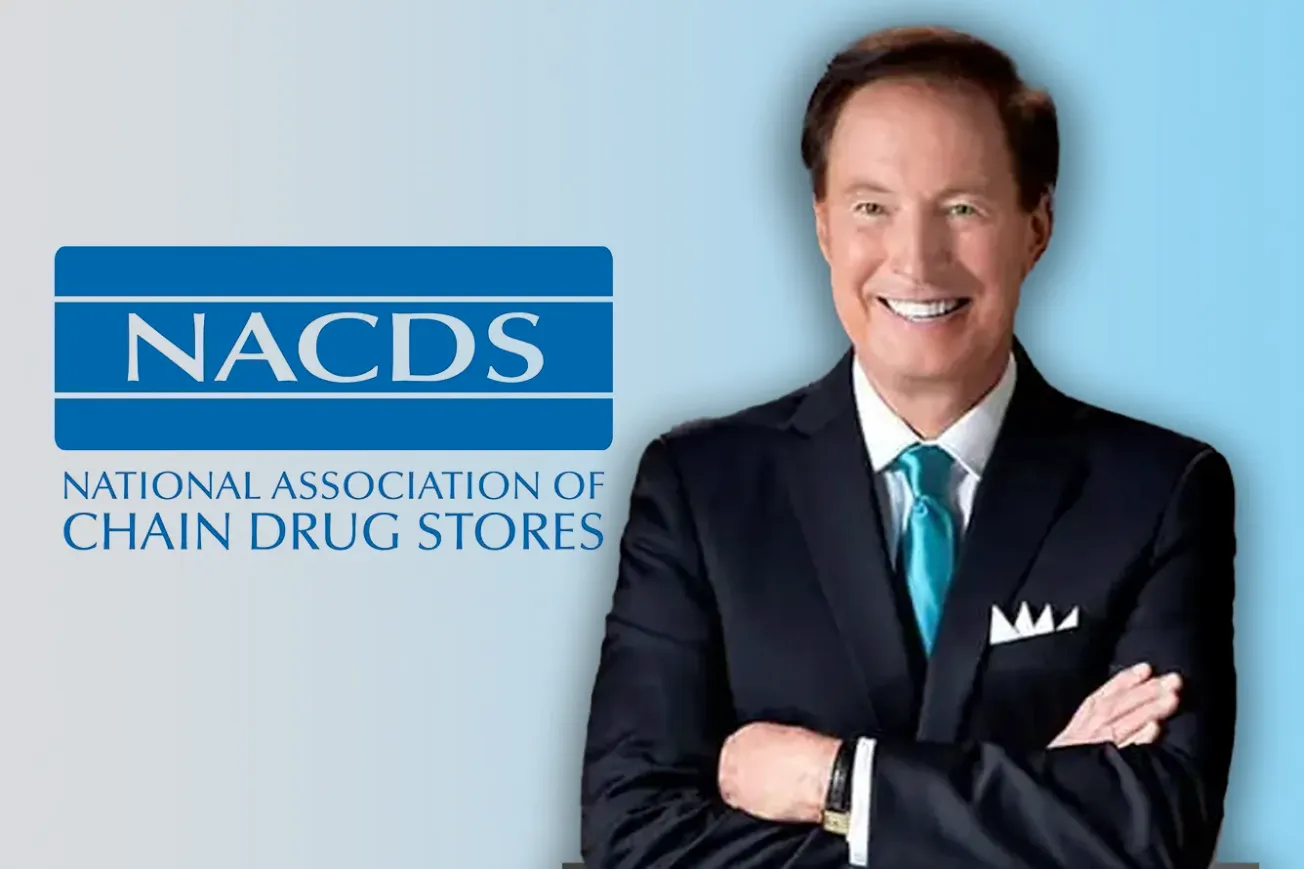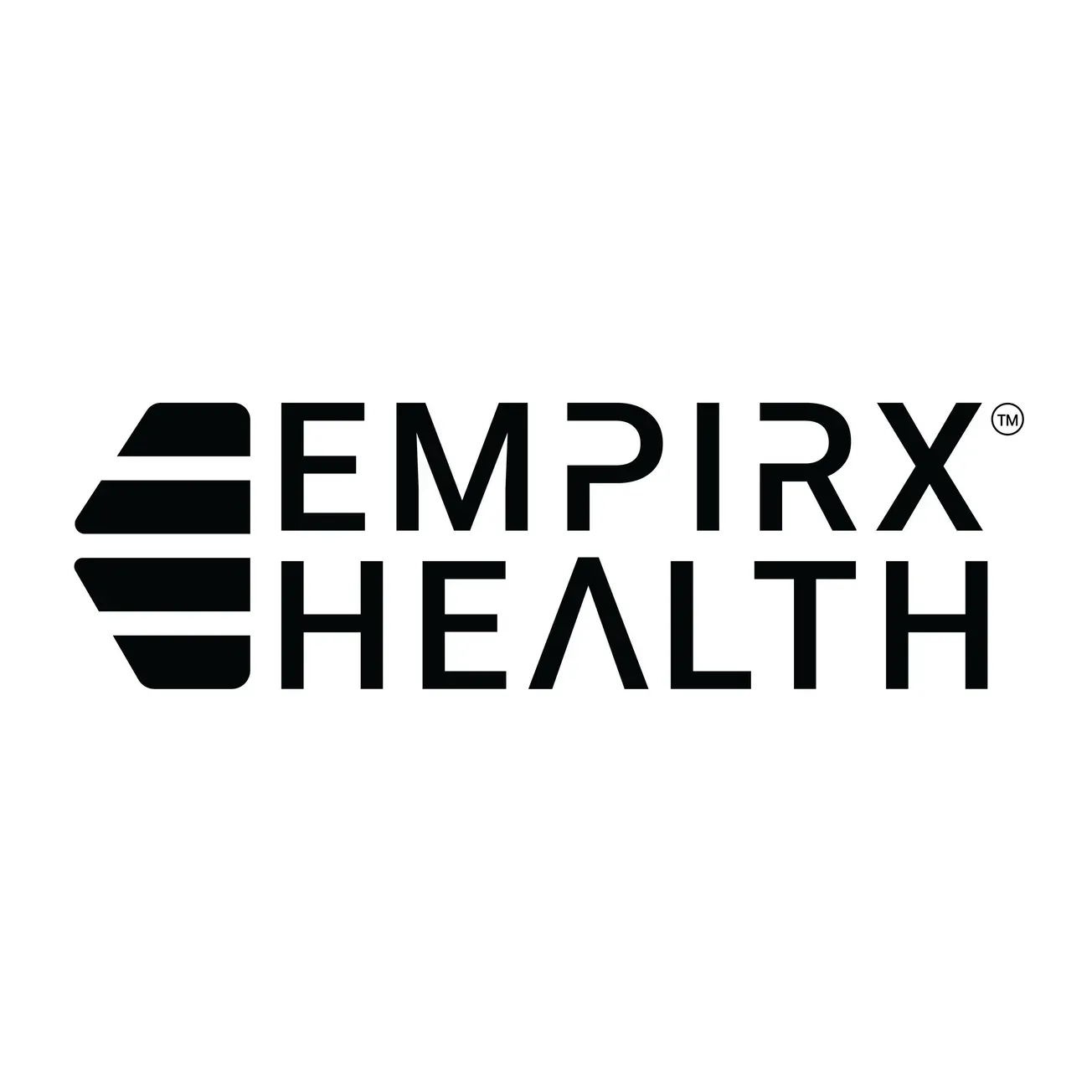CAMBRIDGE, Mass. — Patient communication network PatientsLikeMe has broadened the scope of patient-generated information it offers through Walgreens.com.
PatientsLikeMe said the new information highlights why patients use specific prescription drugs and how effective they think these medications are.

The interactive PatientsLikeMe network enables anyone with a chronic health condition to track and share symptom and treatment experiences.
Also included are lists of the top five drug alternatives patients have tried for the same condition, plus links to more extensive reports about dosage, duration, adherence and burden for more than 5,000 medications.
The information is updated daily and comes from aggregated reports by PatientsLikeMe members.
Walgreens was the first pharmacy to provide PatientsLikeMe reports on medications via its website.
The latest offering is an expansion of the collaboration that the two companies announced in 2015, when PatientsLikeMe first offered its patient-generated information on drug side effects and their severity on the Walgreens Health Dashboard, a private, personalized health information tool.
A free network, PatientsLikeMe enables anyone with a chronic health condition to track and share symptom and treatment experiences, connect with others and contribute data for research.
The company said the website has helped more than 400,000 people learn from each other about how to improve their health outcomes. In the process, they generate data about the real-world nature of disease that help researchers, pharmaceutical companies, regulators, health providers and nonprofits develop more effective products, services and care.
“Whether you’re just starting a new medication or you’re researching alternatives, knowing what others have already experienced is invaluable,” Michael Evers, executive vice president of marketing, technology and operations at PatientsLikeMe, said in a statement. “We’re excited that our members are helping more people know their options and what to expect, so that everyone can make more informed choices for their health.”









